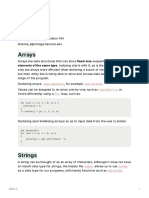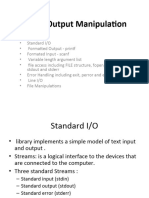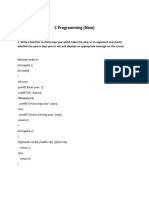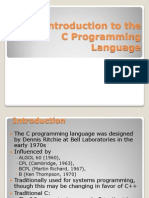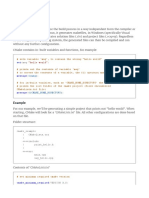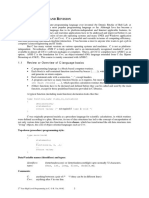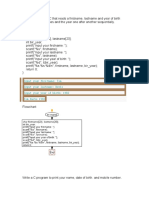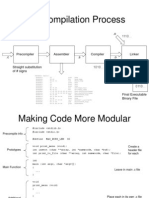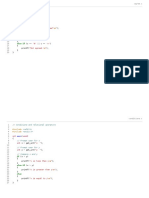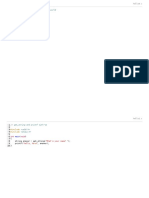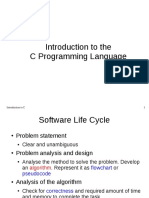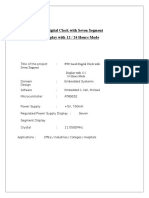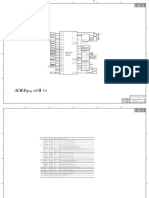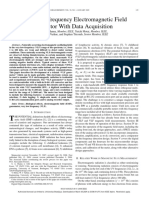0% found this document useful (0 votes)
16 views56 pagesSection 2 - Arrays
This document discusses concepts related to CS50 including compilation, arrays, strings, command-line arguments, and program design. It provides examples of C code using these concepts and explains steps like compiling and running programs from the command line.
Uploaded by
Hoàng Minh ThắngCopyright
© © All Rights Reserved
We take content rights seriously. If you suspect this is your content, claim it here.
Available Formats
Download as PDF, TXT or read online on Scribd
0% found this document useful (0 votes)
16 views56 pagesSection 2 - Arrays
This document discusses concepts related to CS50 including compilation, arrays, strings, command-line arguments, and program design. It provides examples of C code using these concepts and explains steps like compiling and running programs from the command line.
Uploaded by
Hoàng Minh ThắngCopyright
© © All Rights Reserved
We take content rights seriously. If you suspect this is your content, claim it here.
Available Formats
Download as PDF, TXT or read online on Scribd
/ 56

